NAVYPEDIA
 Support the project with paypal
Support the project with paypal
Photo

Tashkent 1939
Ships
| Name | No | Yard No | Builder | Laid down | Launched | Comp | Fate |
|---|---|---|---|---|---|---|---|
| Ташкент [Tashkent] | 215 | OTO, Livorno, Italy | 1.1937 | 28.11.1937 | 10.1939 | sunk 2.7.1942 |
Technical data
| Displacement standard, t | 2893 |
|---|---|
| Displacement full, t | 3200 |
| Length, m | 139.8 |
| Breadth, m | 13.7 |
| Draught, m | 3.70 |
| No of shafts | 2 |
| Machinery | 2 geared steam turbines sets, 2 Yarrow boilers |
| Power, h. p. | 110000 |
| Max speed, kts | 39 |
| Fuel, t | oil 1072 |
| Endurance, nm(kts) | 5030(20) |
| Armament | as designed: 3 x 2 - 130/50 B-2LM, 6 x 1 - 45/43 21K, 6 x 1 - 12.7/79, 3 x 3 - 533 TT, 2 DCR (25), 80 mines as completed: 3 x 1 - 130/50 B-13, 6 x 1 - 45/43 21K, 6 x 1 - 12.7/79, 3 x 3 - 533 TT, 2 DCR (25), 80 mines |
| Electronic equipment | hydrophone |
| Complement | 250 |
Graphics
Project history
Negotiations with Italian shipbuilders about building of destroyer leader for the USSR have begun in 1935 and have come to the end with signing 9.9.1935 of contract with OTO. The requirements provided considerable improvement of general performances in comparison with Leningrad: speed not less than 42.5kts, endurance not less of 5000(20)nm, armament consisted from 3 twin 130mm turret mounts, 6 45mm AA guns and 3 triple 533mm TTs. The armament should be fitted after arrival of ship to the USSR. 3.2.1936 Italian party presented the project which has received the index 20I. The decision on building of 3 ships in the USSR was simultaneously accepted, but because of differences in technologies it was later refused. 18.4.1939 Tashkent was accepted by crew and 6.5.1939 arrived to Odessa. Ship had an hull with forecastle with appreciable deck sheer to stem and a cruiser-type stern. Prominent features of the leader were completely covered bow streamlined superstructure smoothly transferring to fore funnel, and covered storm corridor, allowing to be transferred on all ship length without an exit to an upper deck. Extremely powerful machinery placed en echelon. On trials Tashkent reached 43.53kts at 3422t and 130000hp. Under the project the armament consisted from 3 twin 130mm/50 B-2LM turret mounts, but because of a protraction of availability of the latter, Tashkent at commission received temporary armament: 3 single 130mm/50 B-13 guns. Originally designed guns were installed in February, 1941.
Modernizations 2.1941 - 3 x 1 - 130/50 B-13, 6 x 1 - 45/43; + 3 x 2 - 130/50 B-2LM, 6 x 1 - 37/63 70K (as designed)
1941: - 3 x 1 - 130/50 B-13, 6 x 1 - 45/43; + 3 x 2 - 130/50 B-2LM, 6 x 1 - 37/63 70K (as designed)
8/1941: + 1 x 2 - 76/52 39K
Naval service
27.6.1942 en route from Sevastopol to Novorossiysk Tashkent was hard damaged by German aircraft and 2.7.1942 sunk by German aircraft at Novorossiysk. By summer of 1944 she was salvaged and broken up in 1946-1948.
 HOME
HOME FIGHTING SHIPS OF THE WORLD
FIGHTING SHIPS OF THE WORLD RUSSIA / USSR
RUSSIA / USSR TORPEDO SHIPS
TORPEDO SHIPS TASHKENT destroyer leader (project 20) (1939)
TASHKENT destroyer leader (project 20) (1939)

